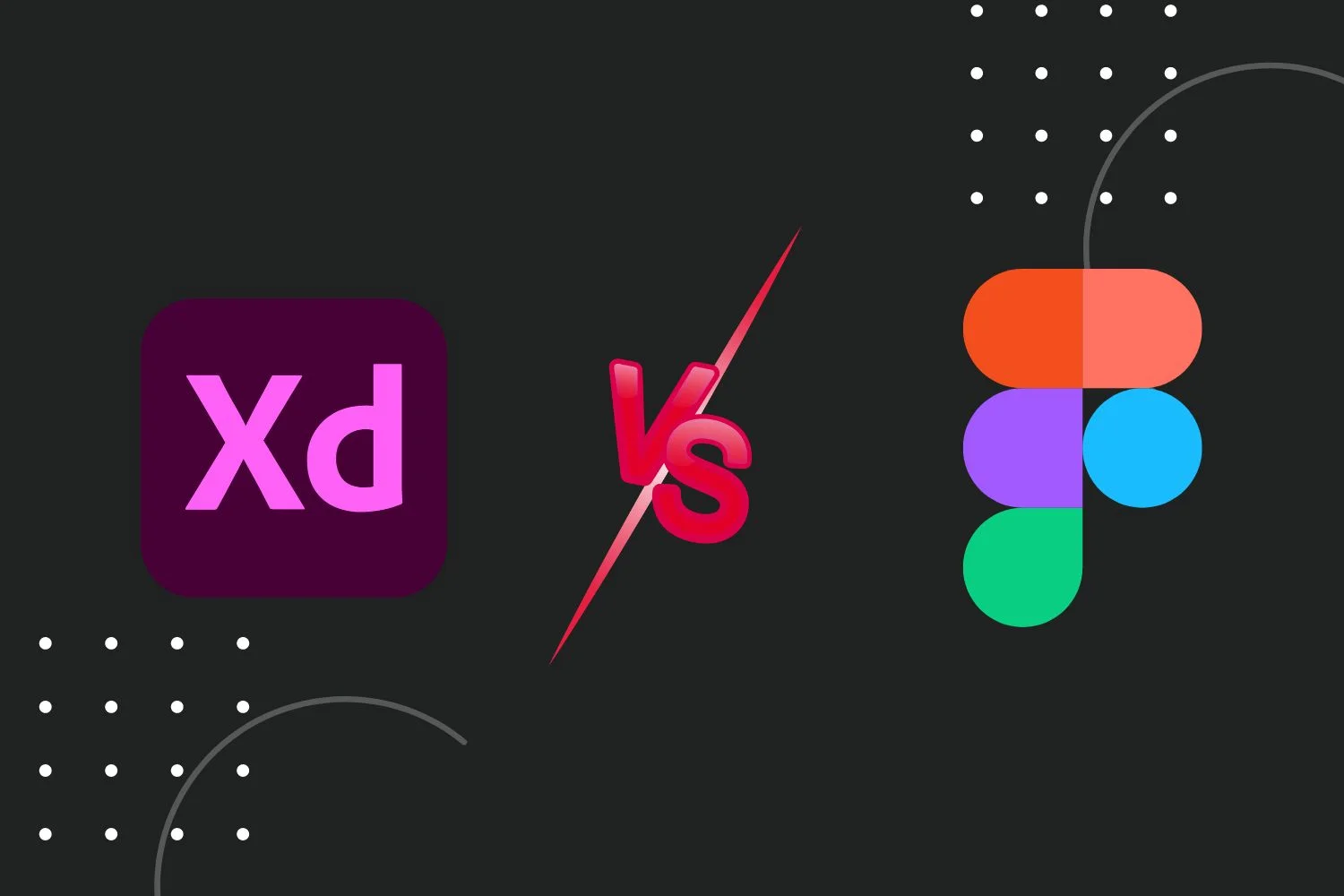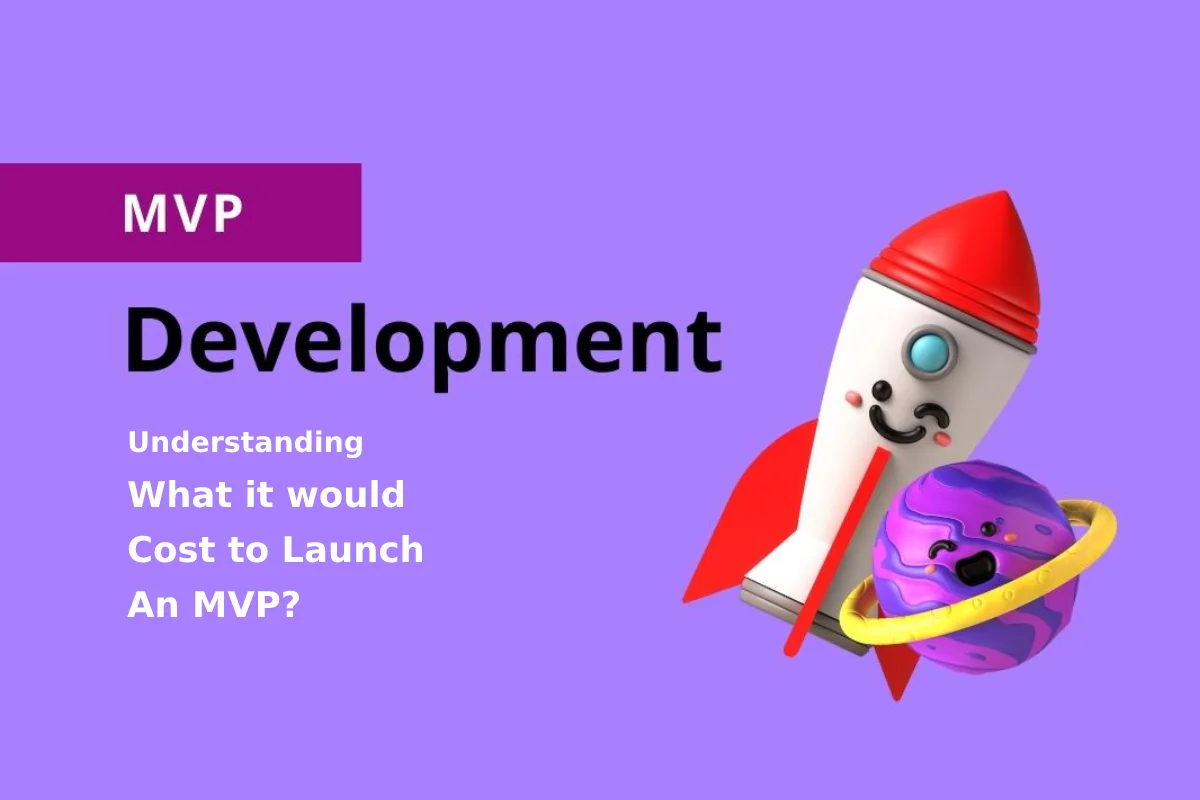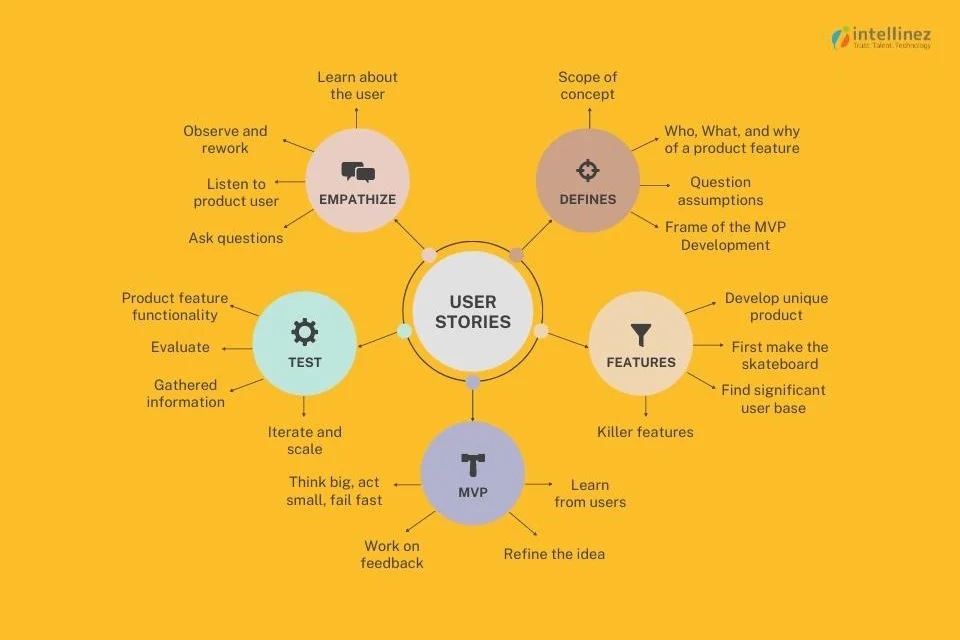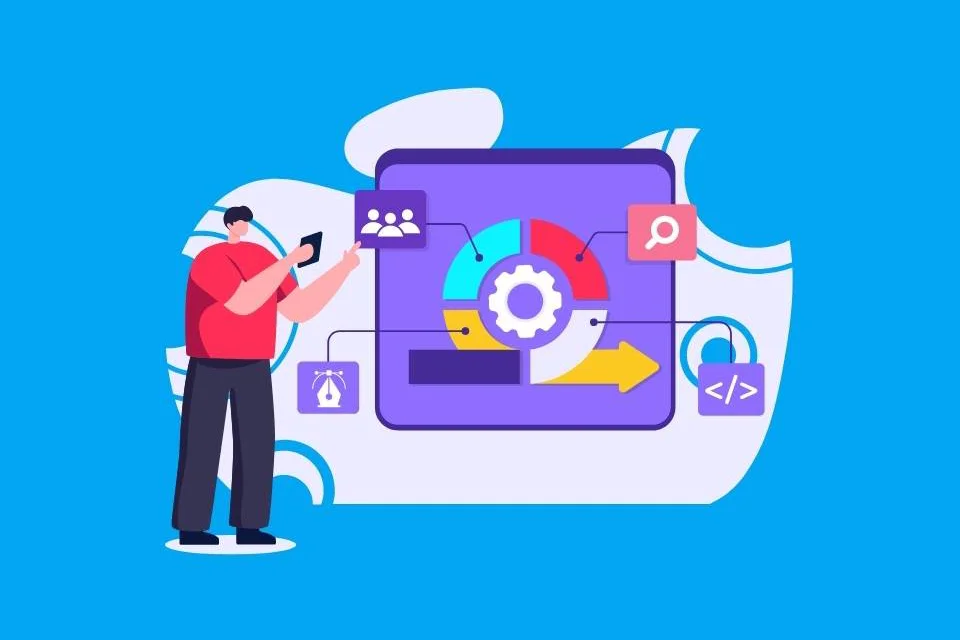Table of Contents
The .NET developer landscape is more dynamic than ever, with constant advancements in framework, tools, and best practices. Staying up to date in this ever-changing field is no longer optional-it’s essential. According to a recent study by Zippia, the job market is projected to grow by a staggering 13% by 2028 for .NET developer. This makes now the perfect time to sharpen your skills and position yourself for success.
Mastering .NET is essential for developers looking to stay ahead in the competitive software landscape. With its ability to integrate seamlessly with different platforms and technologies, .NET empowers developers to write efficient, scalable, and secure applications. Additionally, the framework’s large developer community and continuous updates make it an evolving ecosystem, ensuring that professionals who specialize in .NET have access to cutting-edge resources and opportunities.
For businesses, adopting .NET development offers a distinct commercial advantage. Its reliability, security features, and cost-effective solutions help companies reduce development time while maintaining high-quality standards. Whether it’s building enterprise-level applications or creating custom software solutions, .NET enables businesses to deliver robust digital experiences that drive growth and innovation.
This blog will delve deeper into the advantages of .NET development, its key features, and why it’s a game-changer for both developers and businesses. Additionally, we will explore practical tips for mastering .NET and how businesses can strategically implement it for maximum returns.
Key Skills Every .NET Developer Should Have
To thrive as a .NET developer, mastering key skills is essential. A few fundamental areas that developers need to excel in are mentioned below:

Proficiency in C#
C# is the cornerstone of .NET development, and mastering it is crucial for any development aiming to excel in this framework. As the primary programming language within the .NET ecosystem, C# offers a blend of simplicity, flexibility, and power. Its object-oriented nature makes it suitable for building a wide range of applications, from simple desktop programs to complex enterprise solutions. C# is designed to be easy to learn, yet it provides the depth needed for handling advanced programming concepts like asynchronous programming, memory management, and error handling.
Developers proficient in C# can harness the full potential of the .NET framework, creating efficient, maintainable, and scalable applications. Additionally, its versatility across different platforms, thanks to .NET’s cross-platform support, means that C# is a skill with high demand and widespread applicability. Mastering C# not only makes developers more productive but also enables them to tackle a variety of software challenges with confidence.
Understanding of ASP.NET Core
ASP.NET Core is another crucial skill for .NET developers, particularly for those building modern web applications. ASP.NET Core is a cross-platform, high-performance framework for developing web apps and APIs. It provides developers with the tools needed to build fast, scalable, and secure web applications. With features like built-in dependency injection, middleware pipelines, and Razor Pages, ASP.NET Core simplifies the development process while ensuring high performance.
Understanding ASP.NET Core allows developers to create robust web applications that can serve millions of users efficiently. It also offers cloud-readiness, making it the go-to framework for enterprises looking to deploy web apps on platforms like Azure. By mastering ASP.NET Core, developers can ensure their web applications are fast, responsive, and future-proof.
Familiarity with .NET libraries and frameworks
A strong grasp of .NET libraries and frameworks is essential for every .NET developer, as these tools significantly enhance development efficiency and code quality. Key libraries like Entity Framework and LINQ simplify data handling and manipulation.
Entity Framework (EF) is an object-relational mapper (ORM) that enables developers to interact with databases using .NET objects, eliminating the need for extensive SQL code. EF streamlines database operations like querying, updating, and schema creation, making it easier to manage data without writing manual queries.
Similarly, LINQ (Language Integrated Query) provides a uniform query syntax for working with different data sources, such as databases, XML, or collections, allowing developers to write expressive and readable queries. Familiarity with these libraries allows developers to build data-driven applications more efficiently, reducing both development time and errors.
Database management
Proficiency in SQL Server and database management is another essential skill for .NET developers. SQL Server is Microsoft relational database management (RDBMS) and is commonly used with .NET applications to store, retrieve, and manage data. Developers must be adept at writing SQL queries, optimizing database performance, and designing schemas. Efficient database management ensures that applications run smoothly, especially when handling large datasets.
Skills in database design, indexing, and understanding transaction management are crucial for building scalable and reliable applications. In today’s data-centric world, strong database management skills enable developers to create applications that handle data efficiently, ensuring seamless performance and security.
Cloud integration with Azure
As businesses increasingly shift towards cloud-native applications, expertise in Azure, Microsoft’s cloud computing platform, has become highly valuable. Azure offers a range of services, from virtual machines to databases, that can be easily integrated with .NET applications. Developers skilled in Azure can build, deploy, and manage applications directly in the cloud, taking advantage of Azure’s scalability, security, and global reach.
With features like Azure App Service, developers can quickly deploy .NET applications to the cloud, while Azure DevOps simplifies continuous integration and continuous deployment (CI/CD). As the demand for cloud-native applications grows, Azure expertise helps developers build scalable and modern applications, making it a critical skill for .NET developers.
Version control systems
In collaborative software development, familiarity with version control systems, particularly Git, is essential. Git enables developers to track changes in their codebase, collaborate with team members, and manage multiple versions of a project simultaneously. With Git, developers can work on features in isolation through branches, merge changes seamlessly, and resolve conflicts efficiently.
In addition, Git’s distributed nature allows every developer to have a complete history of the project, enabling work even when offline. Using platforms like GitHub or GitLab, teams can collaborate on code, review changes, and contribute to open-source projects. Mastering Git helps developers ensure code stability, streamline teamwork, and maintain version integrity, making it indispensable in modern software development.
Essential Tools for .NET Developers

Visual Studio IDE
Visual Studio is the most popular and comprehensive Integrated Development Environment (IDE) for .NET development. Built by Microsoft, it provides everything developers need to build, test, and deploy .NET applications across various platforms, such as web, desktop, and mobile. Visual Studio’s key strengths lie in its powerful code editor, integrated debugging tools, and seamless project management capabilities. The IDE supports multiple programming languages, including C#, F#, and Visual Basic, making it versatile for different development needs.
Its extensive library of plugins and extensions enhances the developer’s experience by offering features like code refactoring, unit testing, and database management. Additionally, Visual Studio’s IntelliSense feature provides intelligent code suggestions, auto-completion, and syntax error detection, which boosts coding productivity and reduces errors. For .NET developers, Visual Studio is an indispensable tool due to its ability to handle complex projects while offering a user-friendly and efficient environment.
ReSharper
ReSharper is a popular Visual Studio extension developer by JetBrains that enhances code quality and boosts developer productivity. It offers advanced code analysis, refactoring tools, and coding assistance for .NET projects. ReSharper’s primary function is to identify and suggest improvements for code, making it easier to maintain clear, optimized, and bug-free codebases.
With features like automatic code formatting, navigation shortcuts, and error highlighting, ReSharper helps developers quickly identify potential issues and fix them before they become significant problems. It also offers refactoring options to optimize code structure without altering its functionality. ReSharper’s powerful code generation tools allow developers to automate repetitive coding tasks, increasing overall efficiency. For .NET developers looking to streamline their workflow and ensure code consistency, ReSharper is an invaluable addition to Visual Studio.
Azure DevOps
Azure DevOps is a cloud-based service that supports project management, version control, and continuous integration/continuous delivery (CI/CD) pipelines for software development. For .NET developers, Azure DevOps provides a full suite of tools to manage the entire development lifecycle, from planning to deployment. Its project management tools allow teams to create work items, assign tasks, track progress, and collaborate effectively.
Azure Pipelines, one of its core components, enables developers to automate the build and deployment process, ensuring code is tested and deployed consistently across environments. With Azure DevOps, developers can integrate with GIT for version control, manage releases, and ensure smooth collaboration across distributed teams. Its CI/CD pipelines help ensure that updates are delivered quickly and reliably, making it a critical tool for efficient, agile software development.
NuGet Package Manager
NuGet is the official package manager for .NET, allowing developers to manage dependencies and libraries with ease. It simplifies the process of adding, removing, and updating third-party libraries or custom packages in a project. Using NuGet, developers can pull in packages that offer pre-built functionality, such as logging frameworks, data access tools, or UI components, reducing the time spent on building every time from scratch.
When you install a package through NuGet, it automatically handles dependency resolution, ensuring all necessary files and dependencies are included in your project. This ensures that the right versions of libraries are used, minimizing compatibility issues, NuGet also allows developers to create and share their own packages, fostering collaboration and reuse across teams. For .NET projects, NuGet significantly boosts productivity by streamlining package management, making it an essential tool for maintaining clean and manageable codebases.
Postman/Swagger
Postman and Swagger are powerful tools for API development and testing. Postman is an API client that simplifies the process of sending HTTP requests, receiving responses, and validating API behavior. It provides an intuitive interface where developers can easily create, test, and debug APIs. By allowing you to group requests into collections and simulate different environments, Postman improves API testing and collaboration.
On the other hand, Swagger (now part of OpenAI) provides a framework for documenting, designing, and interacting with APIs. With Swagger, developers can automatically generate interactive documentation for APIs, making it easier for teams to understand and use them. Swagger’s UI allows developers to test endpoints directly from the documentation, ensuring everything is working as expected. Combined, Postman and Swagger offer a streamlined workflow for API development, enabling faster and more efficient API creation, testing, and collaboration.
Docker
Docker revolutionizes software development through containerization, allowing developers to package applications along with their dependencies into containers. These containers can run consistently across different environments, eliminating issues like “It works on my machine.” .NET developers and Docker enable the isolation of application environments, making it easier to manage microservices, test different versions, and scale applications. Docker containers are lightweight and faster to deploy compared to traditional virtual machines.
With Docker, developers can create a consistent environment for their .NET applications, from development to production, ensuring smoother deployment and fewer bugs related to environment differences. Additionally, Docker’s compatibility with cloud platforms, like Azure, makes it ideal for deploying .NET applications at scale. By containerizing .NET apps, developers can improve efficiency, streamline deployment, and reduce the complexities of managing dependencies and environments.
JetBrains Rider (Commercial Plugin)
JetBrains Rider is a powerful, cross-platform IDE designed as a commercial alternative to Visual Studio for .NET development. Built by JetBrains, the creators of ReSharper, Rider integrates advanced coding tools directly into the IDE, offering features like code analysis, refactoring, and navigation for faster development. One of Rider’s key advantages is its performance – it’s lightweight and optimized for large codebases, often running faster than Visual Studio, especially in scenarios with extensive projects.
Rider supports various platforms, including Windows, macOS, and Linux, making it a versatile choice for developers working in different environments. It also offers seamless integration with version control systems like Git, along with Docker, Kubernetes, and Azure DevOps. Its intuitive UI, coupled with intelligent coding assistance and cross-platform support, makes Rider a competitive alternative for .NET developers looking for a robust, all-in-one solution. While it’s a commercial product, the investment in Rider can significantly boost productivity, making it a strong contender for serious .NET developers.
Best Practices for Effective .NET Development
Follow SOLID Principle
The SOLID principles are a set of five design principles that help developers create maintainable, scalable, and robust code in .NET applications. The acronym stands for:

- Single Responsibility Principle
- Open/Closed Principle
- Liskov Substitution Principle
- Interface Segregation Principle
- Dependency Inversion Principle
Each principle addresses specific design challenges. For example, the Single Responsibility Principle states that a class should have only one reason to change, promoting code organization and making it easier to understand.
The Open/Closed Principle encourages developers to design classes that are open for extension but closed for modification, fostering a flexible architecture.
By adhering to these principles, developers can create systems that are easier to maintain, test, and extend over time. This results in less technical debt and improved collaboration within development teams, as the codebase remains clear and modular. Overall, following SOLID principles is essential for writing high-quality .NET applications that can evolve with changing requirements.
Adopt Test-Driven Development (TDD)
Test-driven development (TDD) is a software development approach that emphasizes writing tests before writing the actual code. This practice promotes a cycle of writing a failing test, developing the minimum code necessary to pass that test, and then refactoring the code for optimization. The primary benefit of TDD is that it encourages developers to think critically about the functionality and design of their code before implementation. This results in better-defined requirements and improved code quality since tests serve as a specification for the expected behavior.
TDD also increases confidence in the codebase; as tests are added and maintained, developers can quickly identify issues when changes are made. Additionally, it leads to a more comprehensive test suite, making it easier to catch bugs early in the development process. While TDD may initially slow down development, it ultimately leads to faster iterations, less debugging time, and more reliable applications, making it a valuable practice for effective .NET development.
Use Dependency Injection (DI)
Dependency Injection (DI) is a design pattern that helps manage dependencies in software applications, promoting loose coupling and enhancing code flexibility. In .NET development, DI allows developers to define how objects are created and how they interact with one another, rather than hardcoding dependencies within classes. By using DI, the developer can inject dependencies at runtime, enabling the application to easily switch between implementations without changing the dependent classes. This is particularly useful for unit testing, as it allows for the substitution of mock objects for actual implementation, making tests simpler and more isolated.
Additionally, DI promotes better organization and separation of concerns within the codebase, leading to improved readability and maintainability. When combined with frameworks like ASP.NET Core, which has built-in support for DI, developers can create scalable and adaptable applications. Overall, adopting Dependency Injection is a best practice that contributes significantly to effective .NET development by fostering modular design and simplifying testing processes.
Optimize for Performance
Optimizing for performance is crucial in software development, particularly in >NET applications, to ensure a smooth and responsive user experience. Two key techniques for enhancing performance are caching and asynchronous programming. Caching involves strong frequently accessed data in memory, reducing the need to retrieve it repeatedly from slower data sources, such as databases or APIs. By implementing caching strategies, developers can significantly decrease response times and minimize server load, enhancing overall application performance. Common caching techniques include in-memory caching, distributed caching, and HTTP caching, depending on the application’s architecture and requirements.
Asynchronous programming, on the other hand, allows developers to write code that can perform multiple tasks concurrently without blocking the main thread. This is especially beneficial in web applications, where handling multiple user requests simultaneously is essential. By using async/await patterns in C#, developers can improve applications’ responsiveness and scalability, leading to better resource utilization. Combining caching and asynchronous programming enables .NET developers to create high-performance applications that can efficiently handle increased user loads, providing a better experience for end users.
Embrace Continuous Integration/Continuous Deployment (CI/CD)
Embracing Continuous Integration/Continuous Development (CI/CD) is vital for modern software development, as it allows teams to automate their deployment pipelines. CI/CD practices involve automatically building, testing, and deploying code changes to production environments, significantly improving the development workflow. Continuous Integration ensures that code changes are integrated into a shared repository frequently, allowing for early detection of issues and bugs. Automated testing during this phase ensures that new code does not break existing functionality, leading to more stable and reliable software.
Continuous Deployment takes this a step further by automating the deployment of code to production after successful testing, allowing teams to deliver updates to users quickly and efficiently. This reduces manual intervention, minimizes human error, and accelerates the time to market for new features and fixes. By adopting CI/CD practices, development teams can focus more on coding and less on deployment hassles, leading to increased productivity and better collaboration. Ultimately, CI/CD enables a faster feedback loop and ensures that applications are always up to date, providing users with a more responsive and reliable experience.
Keep Up with the Latest .NET Versions
Staying current with the latest .NET versions is crucial for developers who want to leverage new features, performance improvements, and security updates. Each new release of .NET often includes enhancements that streamline development processes, improve performance, and introduce new libraries and tools. By keeping up with the latest versions, developers can take advantage of innovations like improved language features in C#, enhanced APIs, and optimized runtime performance. This not only makes their applications more efficient but also simplifies code maintenance and enhances developer productivity.
Moreover, security is a critical concern in software development, and new releases often contain patches for vulnerabilities that could be exploited in older versions. By upgrading to the latest .NET version, developers can ensure that their applications are secure against known threats. Additionally, staying current with .NET fosters a more vibrant development community, as developers can share experiences and solutions related to the newest features. Engaging with the latest updates and participating in community discussions can also enhance professional development and career growth.
Why Choose .NET for Business Applications?
Cross-Platform Development
Cross-platform development is one of the standout features of .NET, enabling businesses to create applications for web, mobile, and desktop environments using a single framework. This versatility allows developers to write code once and deploy it across multiple platforms, significantly reducing development time and effort. With .NET support for technologies like Xamarin for mobile apps and Blazor for web applications, businesses can maintain a consistent user experience and interface across devices.
This not only streamlines the development process but also helps in reaching a broader audience without the need for separate codebases for each platform. Consequently, organizations can save time and resources while delivering high-quality applications tailored for diverse environments making .NET a compelling choice for businesses looking to maximize their reach and efficiency.
Cost Efficiency
Cost efficiency is a significant advantage of using .NET for business applications. By utilizing a single framework for multiple platforms, organizations can reduce the need for maintaining separate codebases, which can be both time-consuming and costly. This unified approach minimizes duplication of effort, allowing development teams to focus on creating robust applications rather than managing multiple versions.
Additionally, the extensive libraries and pre-built components within the .NET ecosystem help speed up the development process, further lowering labor costs. With features like code reusability and shared components, businesses can deliver applications more rapidly, enabling them to respond quickly to market demands. Overall, the financial savings achieved through reduced development time and resources make .NET an attractive option for businesses seeking to optimize their application development strategies.
Enterprise-Grade Security
Enterprise-grade security is a top priority for business-critical applications, and .NET offers robust security features to safeguard sensitive data and ensure compliance with industry standards. With built-in mechanisms like Windows Authentication, Role-based Access Control, and data encryption, .NET helps developers implement secure applications from the ground up.
Furthermore, the framework supports regular security updates and patches from Microsoft, ensuring that applications remain protected against emerging threats. The strong security architecture in .NET also makes it easier to integrate security measures into the development lifecycle, allowing organizations to conduct risk assessments and vulnerability scans. By providing a secure environment, .NET instills confidence in businesses that their applications can handle sensitive transactions and data, making it an ideal choice for enterprises that prioritize security in their software solutions.
Seamless Integration with Microsoft Ecosystem
Seamless integration with the Microsoft ecosystem is another compelling reason to choose .NET for business applications. .NET works flawlessly with various Microsoft products, including Azure for cloud services, Office 365 for productivity, and Microsoft SQL Server to enhance their applications, such as using Azure for scalable hosting solutions or Office 365 for incorporating collaborative features.
Furthermore, .NET enables easy connectivity to other Microsoft services, such as Power BI for data analytics and Microsoft Team for communication. This interconnectedness allows organizations to build comprehensive solutions that improve workflow, enhance productivity, and facilitate better collaboration among teams.
Community and Support
A large developer community and robust support are significant advantages of choosing .NET for business applications. With a Vibrant and active community of developers, organizations benefit from a wealth of shared knowledge, resources, and experiences. This collective expertise leads to the creation of numerous libraries, frameworks, and tools that can simplify the development process.
Additionally, Microsoft’s commitment to .NET is evident through extensive documentation, tutorials, and forums, making it easier for developers to find solutions to common challenges. The community also organizes events, meetups, and online discussions, fostering collaboration and continuous learning. Businesses can take advantage of this ecosystem for troubleshooting, seeking advice, and accessing best practices, which can significantly reduce development risks and enhance project outcomes.
How Intellinez Can Help You Excel in .NET Development
Intellinez boasts extensive experience in .NET development, delivering high-performance applications across industries. Our team of seasoned developers excels in building secure, scalable, and cross-platform solutions tailored to your business goals.
We offer comprehensive consulting, training, and development services to help you harness the full potential of .NET. Whether you need guidance or full project execution, Intellinez has you covered at every step.
Conclusion
Mastering .NET development is essential for developers and businesses seeking to thrive in today’s tech landscape. With its robust framework, cross-platform capabilities, and strong community support, .NET empowers developers to create scalable, secure, and efficient applications. By staying up to date with the latest tools and best practices, developers can ensure their skills remain competitive, while businesses can leverage .NET’s potential to drive growth and innovation. Whether building enterprise-level software or cloud-native applications, adopting .NET provides a distinct advantage in delivering high-quality, performance-driven solutions.
Ready to optimize your business with .NET?
Contact Intellinez today for customized .NET development solutions that meet your specific needs and drive innovation.
-
What is .NET used for?
.NET is a versatile framework used for building web, mobile, desktop, and cloud applications across different platforms.
-
Why should I learn .NET?
Learning .NET gives you access to a growing job market, cross-platform development skills, and a strong developer community.
-
What are the key skills for .NET developers?
Proficiency in C#, ASP.NET Core, SQL Server, and cloud platforms like Azure are essential skills for .NET developers.
-
How does .NET benefit businesses?
.NET helps businesses develop scalable, secure, and cost-effective solutions, improving efficiency and reducing development time.
-
Is .NET a good choice for cloud integration?
Yes, .NET seamlessly integrates with cloud platforms like Azure, making it ideal for building and deploying cloud-native applications.
































![A Comprehensive Guide to AWS SaaS Architecture [Diagram Included] 74 Aws SaaS Architecture](http://www.intellinez.com/wp-content/uploads/2024/08/Title-image.jpg)






























































































